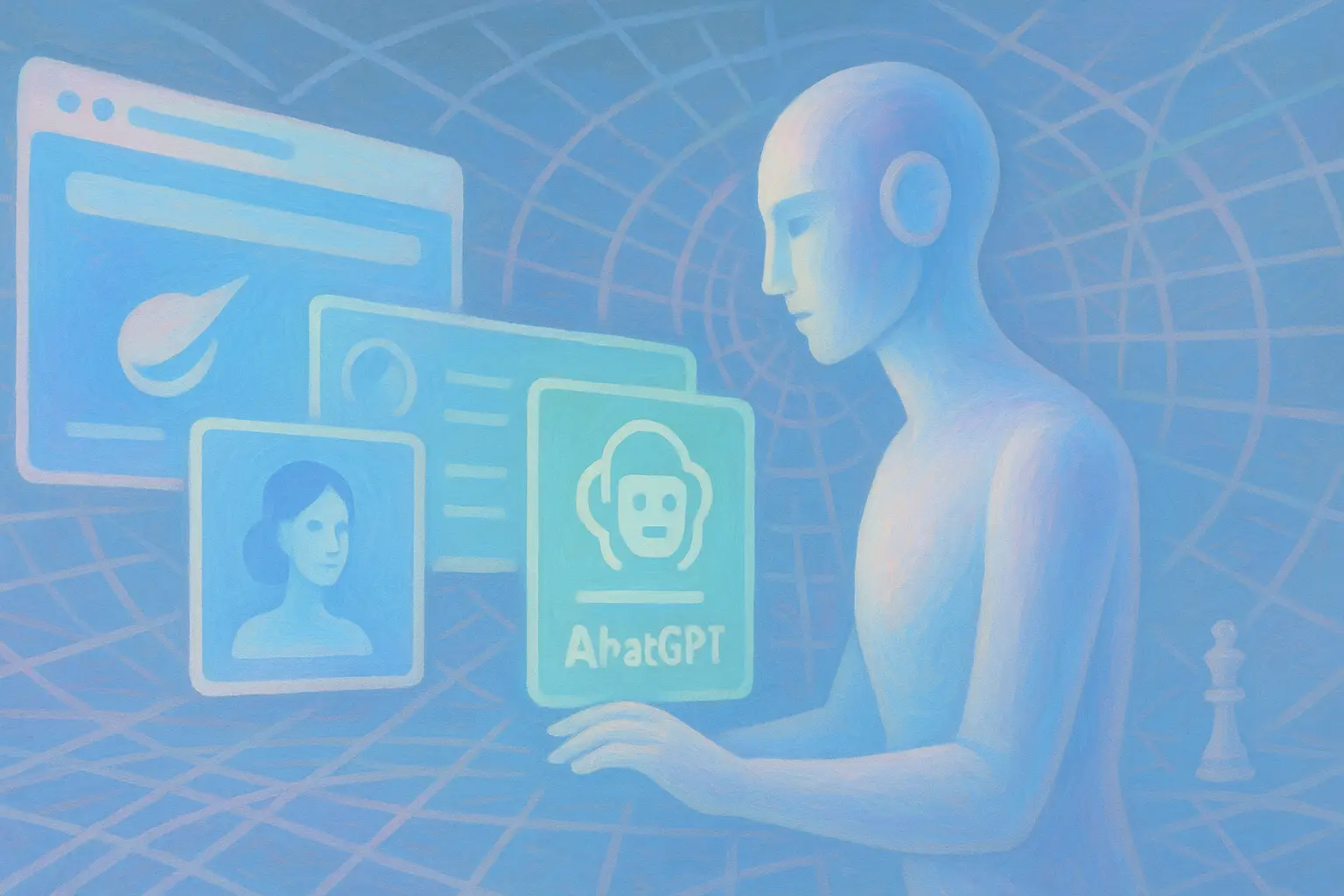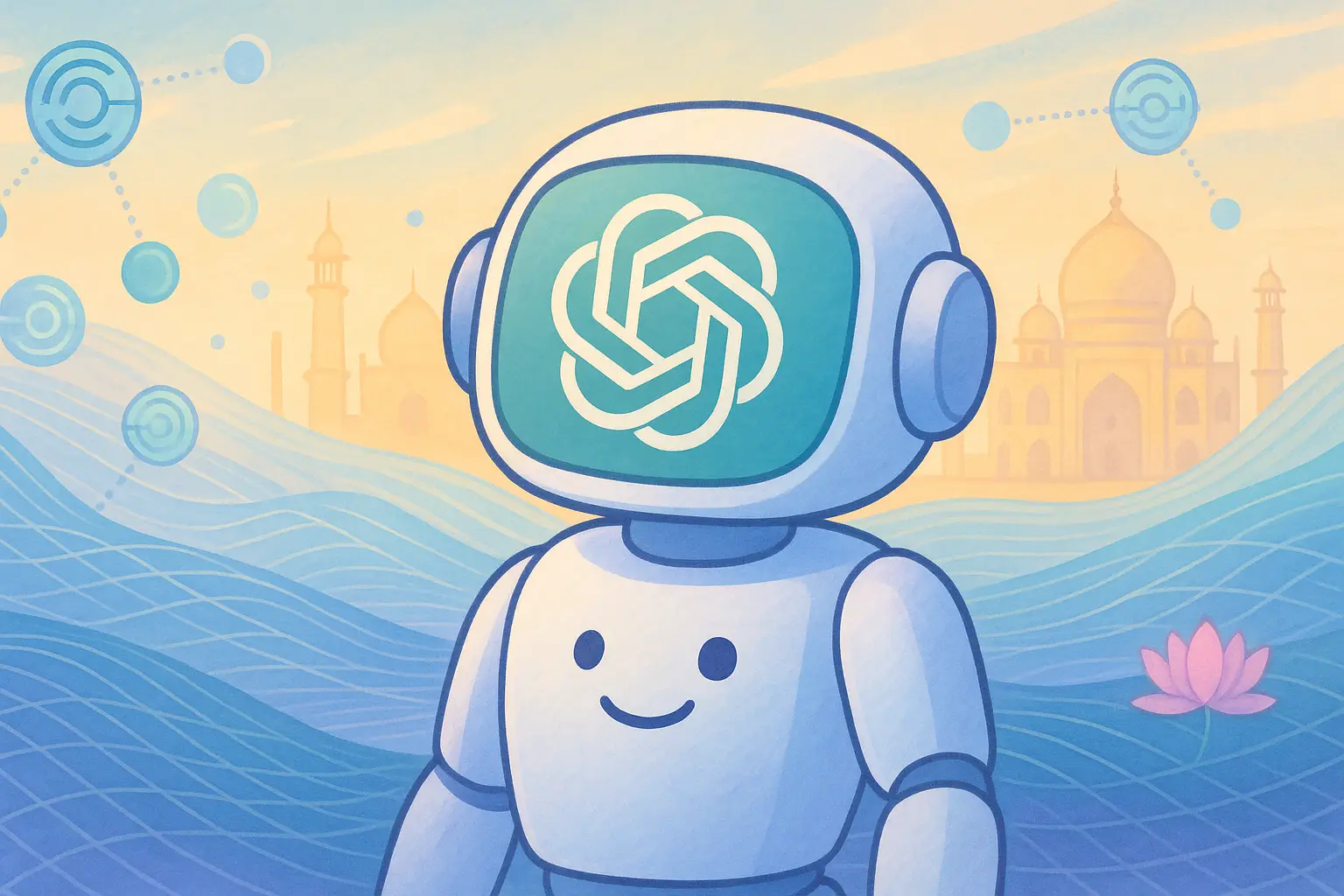
Atlas vs Comet: AI Browser Battle 2025
Table of Contents
- Introduction
- ChatGPT Atlas: An Action-Oriented Web Brain
- Perplexity Comet: A Research-First Knowledge Workspace
- A Comparative Analysis: Battle of the Browsers
- Impact on the Future of the Internet
- Challenges and Considerations
- Conclusion
- Frequently Asked Questions (FAQs)
Introduction
The internet is shifting in dramatic and unexpected ways. We are now witnessing the dawn of AI-native browsers that do far more than display webpages. In this brave new world, traditional browsers are getting replaced by intelligent tools that think along with you. Two heavy-hitters in this field are OpenAI’s ChatGPT Atlas and Perplexity’s Comet. Their battle is not just a contest of features or performance; it is a clash of philosophies that could shape our digital lives for decades to come.
For years, browsers like Chrome, Firefox, and Safari were simply gateways to the web. They became synonymous with passive information consumption. Today, however, everything is changing. Instead of simply reading content, our digital tools are now expected to think, synthesize, and act on our behalf. ChatGPT Atlas aims to convert every online action into a seamless, automated workflow that caters to our busy routines. On the other hand, Perplexity Comet turns the browsing experience into a sophisticated, research-oriented dialogue where every piece of information is connected and cited meticulously.
This article will journey deep into the features and nuances of both browsers. I will discuss how ChatGPT Atlas and Perplexity Comet fit into the new era of AI-powered browsing. We'll look at their core philosophies, examine the user experience, and highlight the impact they are having on the future of the internet. If you are curious about how these tools work — or if you are a professional trying to decide which browser suits your needs — read on. The world is moving fast, and you are right at the edge of a paradigm shift.
ChatGPT Atlas: An Action-Oriented Web Brain
ChatGPT Atlas is OpenAI’s bold dive into transforming how we use the internet. Launched in late 2025, Atlas is more than a browser; it is an intelligent companion designed for action. Its DNA is built to support multi-step workflows that span shopping, research, communication, and more. The idea behind Atlas is simple: enhance productivity by converting natural language commands into real-world actions.
From Conversations to Commands
Atlas is not your everyday browser with a search bar. Instead, its search bar doubles as a conversational interface capable of processing complex commands. Imagine telling your browser, “Find me three upcoming tech conferences on AI automation and register me for the cheapest one.” With Atlas, this command is parsed into a series of steps that the engine executes on your behalf. This process involves querying multiple sources, comparing ticket prices, and even scheduling the event in your digital calendar.
This conversational approach simplifies the online experience. No more juggling multiple tabs and windows; every click becomes an instruction aimed at relieving the tension of decision-making. The browser becomes an extension of your intentions, executing tasks almost as if it were a personal assistant.
Core Features and Capabilities
Atlas packs a plethora of tools intended to make your browsing as productive as possible. Here, I highlight some of its standout features:
-
Agent Mode: Perhaps the most revolutionary feature, Agent Mode splits complex tasks into simple actions performed across the web. For instance, if you require a detailed product comparison report, Atlas searches, reviews, and compiles information into an easily digestible format. This mode makes planning travel, scheduling appointments, or even complex shopping tasks a breeze.
-
ChatGPT Sidebar and Cursor Chat: The persistent sidebar is one of Atlas’s powerful facets. It remains open on your screen, allowing you to interact with the AI as you peruse any webpage. In addition, Cursor Chat provides in-situ assistance in text fields. Writing emails, drafting blog posts, or even casual chats are all upgraded with inline text refinement, summary, and suggestions.
-
Browser Memory: Atlas introduces an optional but reliable browser memory system. This functionality stores browsing contexts, preferences, and historical data. If you ever need to revisit an earlier session or re-read a saved summary, the information is stored securely on your device. Importantly, users have complete control over this memory, which is never automatically shared without explicit consent.
-
Integrated ChatGPT Capabilities: Not only does Atlas combine browsing and conversational functionality, but it also taps into the full range of ChatGPT’s abilities — be it image generation, coding assistance, or app plugins. This integration creates a unified platform that caters to both productivity and creativity, empowering users to explore the full spectrum of online interactions.
-
Split-Screen Companion Mode: This mode allows users to work simultaneously in two panels. One panel shows a webpage or document, while the other maintains a live connection with ChatGPT. Such a setup is ideal for reading long-form articles or research materials while discussing insights without losing your train of thought.
User Experience and Design
Atlas’s design harkens back to the familiarity of traditional browsing. Its interface is airy and clutter-free, ensuring that the user is not overwhelmed by too many options at once. While the sidebar and intuitive chat windows add layers of sophistication, the overall design supports a conversational flow. It is as if you are talking to a friendly guide who is always ready to help you execute your digital tasks.
Privacy is front and center in Atlas. OpenAI takes a strong stance on ensuring that user data remains private and stored locally. No browsing information is collected unless a user opts in, which is a refreshing change in today’s data-driven environment. This commitment to privacy is a key differentiator that helps Atlas gain the trust of its users.
Real-World Applications
For professionals with a packed schedule, Atlas transforms every online action into a streamlined workflow. Imagine planning a business trip: the browser not only finds the best travel deals, it can automatically book flights, reserve hotel rooms, and even arrange car rentals. For marketers and entrepreneurs, the ability to handle multiple online tasks efficiently translates into significant time savings.
In education, Atlas offers a dynamic way to study and research. Students can ask the browser to summarize complex research papers, extract key statistics, or even generate test questions based on the material they are reading. This kind of assistance turns the passive act of reading into an interactive learning session.
Perplexity Comet: A Research-First Knowledge Workspace
While ChatGPT Atlas focuses on automation and task execution, Perplexity Comet takes a different approach to AI-powered browsing. Comet is designed primarily as a research tool. It is less about making things happen and more about making sense of complex data. In a world flooded with information, Comet positions itself as the expert guide who sifts through data to present you with distilled knowledge.
Philosophy of Contextual Intelligence
At its core, Comet is built upon the belief that true intelligence lies in understanding context. Instead of simply fetching information, Comet organizes and correlates data across multiple sources. Every search becomes a thorough investigation, extracting not only relevant information but also the nuances and complexities that lie beneath the surface.
This approach is particularly valuable in research domains. Journalists, academics, and analysts often require credible, well-cited sources to back up their claims. Comet’s ability to offer transparent citations and structured insights makes it an indispensable tool for anyone relying on rigorous research.
Unique Features and Strengths
Comet’s design is heavily tilted toward the needs of researchers and knowledge workers. Let’s unpack some of its defining features:
-
Workspace Model: Rather than relying on endless, disorganized tabs, Comet organizes your activity into project-specific workspaces. Each workspace acts like a research hub: it allows for note-taking, linking multiple sources, and organizing ideas into coherent, manageable sections. This model helps researchers maintain a holistic view of his or her work without getting lost in the chaos of a typical browser setup.
-
Contextual AI Synthesis: Comet is more than a search engine; it is a synthesis engine that cross-references multiple data points to generate comprehensive insights. It takes snippets of information from various websites and textbooks, correlates them intelligently, and provides a coherent summary complete with citations. This feature is particularly useful when dealing with topics that have multiple viewpoints or require balanced analysis.
-
Modular Intelligence Blocks: A unique element in Comet’s toolkit is its capacity to build workflows using AI cells. I often think of these cells as individual research modules that can be chained together. Developers and analytical professionals appreciate this modularity, which makes it easier to customize research pipelines or automate data processing tasks.
-
Persistent Intent Memory: While both Atlas and Comet incorporate memory functions, the latter focuses on maintaining the contextual flow relevant to a particular project or workspace. If you establish a research theme or tone in one session, Comet’s Persistent Intent Memory carries that forward seamlessly in subsequent sessions.
-
Real-Time Web Search with Citation Crawling: In today’s fast-paced world, data can become outdated in a matter of hours. Comet addresses this by constantly crawling the web for fresh, reliable sources. It then updates your evolving research workspace with the latest information, ensuring that your insights are accurate and timely.
The User Interface: Designed for Deliberation
Comet’s design philosophy is starkly different from that of Atlas. The interface is clean, minimalistic, and intentionally designed to avoid distractions. It features panels dedicated to “Goals,” “Data Sources,” and “Findings,” reminiscent of a digital lab notebook. This layout encourages deep, thoughtful investigation and reduces the overload of visual stimuli.
For users intent on research, such as analysts and academics, Comet’s design adds clarity. There is a clear separation between raw data and the interpreted results, allowing users to easily track the evolution of their research. The emphasis on rationale and transparency positions Comet as the trusted researcher’s tool in an era of information overload.
Practical Applications in Research and Academia
The scope of applications for Comet is vast. Within academic environments, it serves as an indispensable tool for students working on dissertations or complex projects. Its capability to pull in diverse data from numerous sources and then synthesize that information into a coherent summary enables students to save time and enhance the quality of their work.
For journalists, the real-time web search coupled with citation crawling is a critical asset. The ability to verify claims on the fly and to generate well-sourced reports makes Comet particularly appealing in a landscape where journalistic integrity is under constant scrutiny.
Business analysts also find Comet to be beneficial. In industries where market trends shift rapidly and decisions rely on accurate data, having a tool that can provide current insights while clearly citing sources is highly advantageous. The modular approach lets them integrate data analysis into their existing workflows, thereby reinforcing trust in the results.
A Comparative Analysis: Battle of the Browsers
The battle between ChatGPT Atlas and Perplexity Comet is not merely about features. It is a contest between two distinct visions for the future of online interaction. On one side, Atlas champions automation and convenience, making the internet action-driven; on the other hand, Comet emphasizes deep analysis and context, turning the online experience into an intellectual journey.
Try Both AI Browsers
Experience what’s next in browsing. Get early access to ChatGPT Atlas and Perplexity Comet.
Key Differences in Philosophy
- Atlas is engineered for efficiency. The focus is on streamlining routine tasks, managing multiple workflows simultaneously, and converting natural language into direct action. It is the browser for those who demand speed and simplicity.
- Comet, on the other hand, is engineered for depth and reliability in research. Every query is transformed into an investigation that not only retrieves information but also validates and contextualizes it. It is the browser for those in need of verified, scholarly insights.
Technical Architecture and Performance
While both browsers share a common goal of harnessing AI, their underlying architectures are designed with different objectives in mind.
Atlas utilizes a robust integration of ChatGPT’s conversational prowess with a Chromium-based infrastructure. This ensures compatibility with widely used web standards and a fluid performance across tasks that demand rapid decision-making. The agent mode, in particular, relies on a series of pre-programmed routines that adapt dynamically to user input.
Comet’s architecture, by contrast, is reminiscent of research platforms that many in academia or finance use. Its modular intelligence blocks operate independently, yet they communicate through a central synthesis protocol. This design gives Comet the flexibility to incorporate new data sources and algorithms without compromising the integrity of its research outputs.
Practical Use Cases Compared
If you are an entrepreneur looking to automate repetitive browsing tasks and streamline online shopping, Atlas offers compelling advantages. The seamless execution of tasks such as bookings, purchases, and scheduling transforms a busy day into well-organized workflows. Atlas stands out by being a true digital assistant, freeing up mental bandwidth to focus on creative or strategic pursuits.
Conversely, if your core need is to gather and analyze information meticulously—whether for academic research, investigative journalism, or detailed market analysis—Comet is built for that exact purpose. Its ability to provide a living research workspace complete with citations and detailed summaries makes it the ideal partner for informed decision-making.
Cost and Accessibility
Both Atlas and Comet come with different pricing models. Atlas is likely integrated within subscription plans that tie into broader ChatGPT ecosystem offerings. For professionals who need AI-assisted productivity tools, this integrated pricing model is a significant plus.
Comet, however, often adopts a freemium model with options for paid research extensions. This model lower the barrier for entry for students and journalists while offering advanced features as optional upgrades. The careful tailoring of pricing structures to user needs underlines how both companies are leveraging user-centric strategies to broaden the adoption of AI-powered browsing.
The Broader Implication on Digital Workflows
The ultimate impact of this battle extends beyond personal convenience or academic research. It hints at a broader transformation: the blurring of lines between software and service, between browsers and AI assistants. Atlas and Comet are not just tools; they are harbingers of a future where every online interaction is enriched with intelligence, context, and autonomy. This shift will likely influence everything from everyday shopping to corporate decision-making, redefining the role of the internet in our lives.
Impact on the Future of the Internet
The rise of AI-native browsers such as ChatGPT Atlas and Perplexity Comet marks a turning point in digital innovation. We are moving toward a future where browsers can learn, adapt, and perform actions almost autonomously.
Redefining User Expectations
Technology always reshapes user expectations, and this era is no exception. With tools that simplify complex online tasks and present information with nuanced clarity, users will expect more than just simple web access. They will increasingly demand intelligent systems that anticipate needs, offer recommendations, and even execute tasks without exhaustive input.
This evolution means that developers and digital strategists must rethink content management, privacy protocols, and user interfaces. As AI collects and synthesizes data on the fly, maintaining transparency and accuracy becomes paramount. These browsers not only enhance productivity but also create larger challenges around digital ethics and data verification.
Shifting Digital Ecosystems
Atlas and Comet are at the forefront of a tidal wave that could soon reshape entire digital ecosystems. For businesses and service providers, integrating AI-powered browsers into operations will mean retooling customer interactions, adapting marketing strategies, and rethinking data flows. Traditional search engines may eventually find themselves in a highly competitive environment where context and action are the gold standard.
The evolution will also influence content creation. Writers and content creators might use these tools to generate drafts, edit on the fly, and optimize content for AI understanding. This synergy between creation and consumption reflects the new collaborative relationship between humans and machines.
Transformation Across Industries
Different industries stand to gain uniquely from these advancements. Retail might see a revolution in how products are discovered and purchased online. Financial analysts could tap into real-time data to derive more accurate projections. In education, learning becomes an interactive dialogue where information is curated dynamically according to the student’s pace and understanding.
A future where every aspect of online interaction is redefined by AI is not far away. We may soon see a digital landscape where our browsers serve not only as gateways to content but also as proactive partners in everyday tasks. The ripple effects of this change will be felt across industries, marking a definitive moment in the evolution of the internet.
Challenges and Considerations
Despite the impressive capabilities of both ChatGPT Atlas and Perplexity Comet, several challenges need attention as these tools become integral parts of our digital lives.
Balancing Automation and Accuracy
One significant challenge is balancing the speed of automation with the need for precision and reliability. Atlas’s multi-step processes may occasionally run into errors if the sequence gets disrupted by unforeseen webpage designs or network issues. Similarly, in Comet, while synthesizing vast amounts of data, ensuring that every citation is accurate requires rigorous safeguards. Users must remain alert to potential misinterpretations or data mismatches that even the most refined algorithms might produce.
Privacy and Data Security
Both browsers promise user-first privacy, but inherent challenges in digital data privacy linger. With complex memory systems that store browsing habits and preferences, companies must implement robust encryption and user control options. The balance between dynamic functionality and maintaining private data safeguards is a constant priority. As users entrust these tools with increasingly sensitive data, transparent data-handling policies will be essential to foster trust and widen adoption.
Integration into Existing Workflows
For many, the transition to an AI-native browser requires rethinking established digital habits. Traditional browsers have long stood as fixed, utilitarian tools. Integrating AI components, dynamic memory, and real-time data synthesis can alter how users interact with content. Both Atlas and Comet are addressing these challenges by offering familiar interfaces, yet the learning curve remains. Companies and individuals must adapt their workflows to the nuanced capabilities of these advanced systems while mitigating any disruption or confusion.
Ethical Considerations
The ethical role of AI in handling personal data and automating digital tasks raises important questions. As these tools gain autonomy, ensuring that they act fairly and impartially is a key challenge. The debate over algorithmic bias, data stewardship, and the responsibility of AI in decision-making contagiously influences regulation and public trust. Both developers and policymakers must collaborate to ensure that the rapid evolution of these browsers does not compromise ethical standards.
Conclusion
The battle between ChatGPT Atlas and Perplexity Comet is emblematic of the broader revolution taking place in our digital universe. Atlas channels the spirit of automation to create an energetic, multi-functional web experience. Comet, in contrast, encapsulates the depth of research and contextual understanding, ensuring that every piece of information is validated and clear.
Choosing between these two will depend on your digital needs. If speed, streamlined actions, and a personal AI assistant are what you require, then Atlas might be your ideal match. On the other hand, if your focus is on precise, research-oriented tasks complete with thorough sourcing, Comet stands out as the superior tool.
Regardless of your choice, one thing is perfectly clear: the future of the internet is here, and it is powered by intelligent collaborators that do more than just display content. They refine, analyze, and sometimes even act on our behalf. This is a turning point that will shape not only how we browse, but how we work, learn, and interact in a digital world teeming with endless possibilities.
In the coming years, expect these tools to evolve even further—integrating richer data sources, becoming more personalized, and offering even greater synergy between human intent and machine execution. As we adapt to this new era, one fact remains clear: the battle for the future of AI browsing is well underway, and its impact will be felt far beyond the realms of technology.
In wrapping up, it is evident that the rivalry between ChatGPT Atlas and Perplexity Comet reflects a broader shift in how we navigate the digital landscape. The merger of intelligent automation and thoughtful research is not a future possibility—it is happening now. As both browsers continue to evolve, they signal an exciting transition toward a more intuitive, efficient, and insightful online experience.
Embracing these advancements means no longer being confined to the limitations of traditional browsing. Rather, it is about stepping into a world where the internet becomes a proactive partner—a space where your digital tasks are managed with precision, your research is continually refined, and every online moment is enriched with intelligent contextual support.
For those of us who are digital enthusiasts, professionals, and lifelong learners, the battle between Atlas and Comet is a celebration of innovation. It challenges the status quo and opens up endless possibilities for personalized, secure, and efficient web navigation. The brave new world of AI-powered browsing has arrived, and its impact is bound to reshape our daily interactions with the vast expanse of the internet.
Stay tuned to this space as we continue to explore the unfolding narrative of how AI is redefining our digital future—one click, one command, and one conversation at a time.
Frequently Asked Questions
Share this article
Related Articles

ChatGPT Go Free in India: Unlock AI Power 2025!
Explore how OpenAI's ChatGPT Go free offer in India is set to transform AI accessibility, from enhanced features to market impact and strategic benefits.

ChatGPT Atlas: AI Browser Revolution
Explore how ChatGPT Atlas, OpenAI's groundbreaking AI-powered browser, transforms web browsing with contextual intelligence, personalized automation, and robust privacy controls.

How to Get Sora 2 Invite Faster and Easier
Discover the smartest strategies and community secrets to secure your Sora 2 invite quickly and effortlessly. Learn step-by-step tips and tricks in this comprehensive guide.
